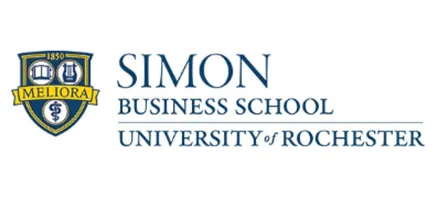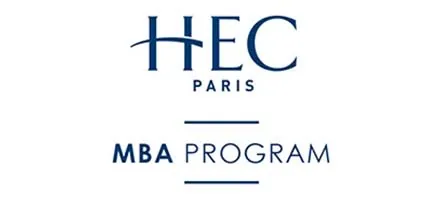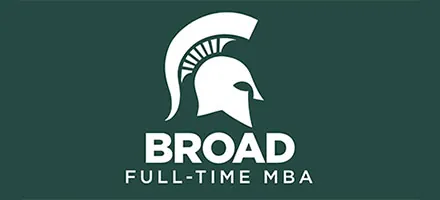Want to know how nerve-wrackingly high MBA student debt has become? Here are three disquieting data points.
Graduating MBAs are shouldering more debt than ever, so much so that a record number of the leading business schools now decline to even share the embarrassing burdens they have put on their students.
Ask the admissions director at MIT’s Sloan School of Management what she thinks of the debt graduates are taking on and you get a non-answer — then an awkward silence. “Students get a life-changing experience here,” insists Dawna Levenson, without volunteering any more information. The average MBA debt last year hit a record $107,172 at Sloan, up 25% in four years from $86,688.
MBAs from only the top 10 U.S. business schools left campus last year with a mind-boggling $317.4 million in graduate loans — from merely the top 10 programs. And that sum is on top of whatever undergraduate debt students brought to business school.
AT MORE THAN A DOZEN SCHOOLS, SIX-FIGURE DEBT IS NOW ROUTINE
Despite ever-increasing amounts of scholarship aid, MBA grads are pouring on student debt at levels never seen before. A new Poets&Quants study shows that MBAs are leaving campus with six-figure debt loads from at least 13 prominent business schools, up from only two schools in 2011. The six-figure burden ranges from a high of $122,370 at the University of Pennsylvania’s Wharton School to $100,083 at the University of Virginia’s Darden School of Business.
Or think of it this way: Wharton’s Class of 2015 borrowed roughly $47.5 million alone for the privilege of gaining the MBA degree. For a Whartonite borrowing the money on a standard 10-year repayment plan, the debt amounts to about $1,408 in monthly payments, assuming a 6.8% interest rate and a total of $46,618 in interest charges.
MBA programs that no longer disclose the data and whose students are well into six-figure holes include the Southern California’s Marshall School of Business, Dartmouth’s Tuck School of Business, Northwestern’s Kellogg School of Management, and Georgetown’s McDonough School of Business. Estimates of their average debt burdens range from $118,088 at USC Marshall to $104,424 at Georgetown.
Even public university business schools aren’t much of a refuge from student debt. Six of the 25 schools whose MBAs graduate with the highest average loans are publics, including Kenan-Flagler Business School at the University of North Carolina, where the average debt burden is $93,898 and 61% of all graduates are in hock. MBAs out of UCLA’s Anderson School of Management, with an average burden of $88,654, now owe roughly $5,000 more than the grads out of private Stanford Graduate School of Business.
GRADUATE DEBT IS CAUSING SOME TO POSTPONE MARRIAGE
Though the payback on an MBA degree is typically three to four years, it’s unclear how long it will take graduates to work off their interest-bearing graduate debt. Yale SOM tells applicants it typically takes about six and one-half years, but it could be much longer. “Lately there has been a robust refinancing market, where many top MBA graduates have found that they can refinance a student loan with a new loan with more favorable terms,” explains Cory Pollock, co-founder of M7 Financial, a firm focused on the student loan requirements of students and alumni. “So technically the original student loan is being paid back early, but it is also being replaced with new a loan.”
Still, debt is having profound implications on many life-changing decisions. Among other things, students in debt are more likely to postpone getting married. Dora Gicheva, an economist at the University of North Carolina, found that for every $10,000 that young people carried in student debt, the likelihood of getting married in the seven years following graduation dropped by some 3 or 4 percentage points.
“Students are often surprised at how fast their money gets spent and how it will affect their job and life choices over the next 10 years,” says Betsy Massar, founder of Master Admissions, an MBA admissions consulting firm and a Harvard MBA. “What people forget is how expensive the whole proposition is, not just tuition, room, and board. There are a lot of great international experiences and they are expensive. People tend to say, ‘I’m already in heavy debt, why not go to Germany for Octoberfest?’ It all adds up. There is a danger of forgetting that your student debt has to be repaid.”
Another consequence of the rising costs of an MBA is that an increasing number of admitted students are apparently turning down more highly ranked schools in favor of others where tuition is lower. A new survey of applicants by Stacy Blackman Consulting found that more than 50% of business school applicants claim they would attend a less-desirable program if awarded a scholarship. “The cost of a business school education is a significant concern,” says Stacy Blackman, president of the admissions consulting firm that bears her name.
AVERAGE MBA DEBT AT HARVARD: $79,667
Of course, not all graduates are leaving business school with debt. Hefty increases in scholarship aid have helped to dampen down some of the pressure on students to take out loans, and a good portion of graduates return to pre-MBA employers who are willing to foot the tuition bills. Company sponsorship of students ranges from one in five at INSEAD in France and Singapore to one in 10 at Stanford. As a result, the percentage of MBAs who graduate with debt varies widely across the schools, from an estimated high of 70% at Yale to a low of 41% at the University of Michigan’s Ross School of Business.
B-schools with deeper pockets, such as Harvard and Stanford, have managed to keep both their student debt loads and the percentage of the class having to borrow relatively low. At Harvard, which now pays out $36 million in scholarship money annually, the average MBA debt was $79,667 for the Class of 2015, with 55% of graduates shouldering debt. At Stanford, average debt for graduating MBAs totals $83,762, but more than half the graduates have no debt at all. Only 47% of Stanford’s grads borrowed money to fund their MBA education in 2015.
For graduates of these leading schools, of course, debt is relative. At Wharton, the first-year median compensation package for a graduating MBA was $146,303 — a pre-tax sum that exceeds the average $122,370 in debt borrowed by the 45% of the class that financed their education through loans.
And there also are plenty of schools where MBA debt is a mere fraction of the totals at the elite business schools. At the University of Wisconsin’s Business School in Madison, the average debt burden for graduating MBAs was a mere $15,481 — $106,889 less than Wharton’s average — while the first-year median comp package was $114,694, just $31,609 below the median pay for a Wharton grad.
(See following page for our table on average debt burden by school)
UPDATE: After objecting to our estimate of the debt burden for graduates of Columbia Business School, the school provided data on both the average MBA student debt and the percentage of graduates who had to borrow money. Those new numbers are reflected in the table that follows.










